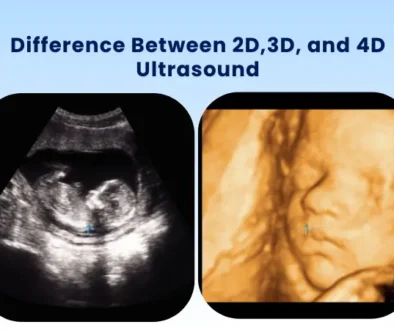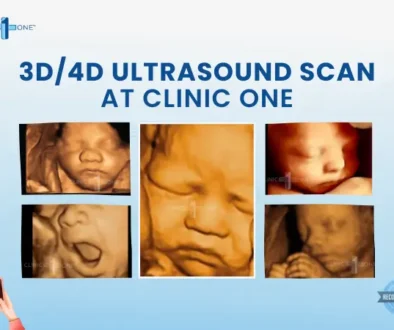Finding the Best Pulmonologist in Kathmandu

Last updated on December 11th, 2025 at 02:17 pm
Are you struggling with respiratory issues and searching for the best pulmonologist in Kathmandu, Nepal? But how do you find the right one that fits your every need? Worry not, as we’ll make this easy for you.
From looking at qualifications and credentials to experience and specialization, we will guide you on everything you need to know when selecting the right lung specialist in Nepal’s capital city. This will ensure you receive the highest quality care for your respiratory health concerns. But before that, let’s talk briefly about who pulmonologists are and when you should seek one.
What is a Pulmonologist and When Should You See One?
A pulmonologist is a medical doctor specializing in diagnosing and treating conditions affecting the respiratory system, including the lungs, bronchial tubes, and upper respiratory tract. These specialists undergo extensive training beyond general medicine to develop expertise in managing complex respiratory issues.
Common Conditions Pulmonologists Treat
- Asthma
- Tuberculosis (particularly relevant in Nepal)
- Sleep apnea
- Lung cancer
- Pulmonary fibrosis
- Bronchiectasis
- Respiratory infections
- Occupational lung diseases
When to Seek Help?
With Kathmandu’s increasing air pollution levels, respiratory conditions have become increasingly common among residents. The city’s particulate matter or air pollution levels often exceed WHO recommendations, making access to quality pulmonary care more important than ever. Hence, If you notice these symptoms, seek medical help immediately.
- Shortness of breath.
- Bluish lips or face (cyanosis – Indicates low oxygen levels in the blood).
- If you have a fever with chills and confusion
- Persistent chest pain or pressure
- Coughing up blood (Hemoptysis – A warning sign of serious lung disease, infection, or cancer).
Qualities to Look for in the Best Pulmonologists
When trying to find the best pulmonologist in Kathmandu, consider these critical factors that distinguish exceptional specialists:
1. Qualifications and Credentials
The most qualified pulmonologists typically have the following:
- MD in Internal Medicine
- DM or specialized training in Pulmonology/Respiratory Medicine
- Additional fellowships in subspecialties (like interventional pulmonology)
- Board certification from recognized medical authorities
- Membership in professional organizations like the Nepal Thoracic Society
Always verify your doctor’s credentials through the Nepal Medical Council’s registry or the hospital’s website where they practice.
2. Experience and Specialisation
Experience matters significantly when dealing with complex respiratory conditions. Consider:
- Years of clinical practice (generally, look for at least 5+ years)
- Experience treating your specific condition
- Subspecialty focus (some pulmonologists specialize in specific areas like sleep medicine, critical care, or interventional procedures)
- Research publications or contributions to the field
3. Hospital Affiliations
The best pulmonologists in Kathmandu typically practice at well-established hospitals with:
- Modern diagnostic equipment (like advanced pulmonary function testing)
- Intensive care facilities
- Multidisciplinary teams for comprehensive care
- Accreditations and quality standards
4. Patient Reviews and Reputation
While online reviews should be taken with some discretion, they can provide valuable insights into:
- Communication style and bedside manner
- Time spent with patients
- Waiting times and accessibility
- Success rates with treatment plans
- Follow-up care quality
Looking for an Expert Pulmonologist? You’re in the Right Place
We’ll connect you with skilled pulmonologists who provide expert care for all your lung health needs. Book your appointment now!
Top Pulmonologist in Kathmandu?
When searching for the best pulmonologist in Kathmandu, Dr. Ekta Malla Rana stands out as one of the city’s premier respiratory specialists. With impressive credentials and specialized training rarely found in Nepal, she offers exceptional care for respiratory conditions:
Dr. Ekta Malla Rana
![]()
- Qualifications: MD in Pulmonary Medicine from Armed Forces Medical College (India) and a Fellowship in Interventional Pulmonology from Sir Ganga Ram Hospital, New Delhi (completed 2024)
- Experience: Consultant Chest Physician at Shree Birendra Military Hospital since 2015; Assistant Professor at Nepalese Army Institute of Health Sciences; Part-time Consultant at Clinic One, Jawalakhel
- Specializations: Advanced interventional pulmonology procedures, tubercular conditions, and management of pollution-related respiratory issues
- Professional Memberships: Nepalese Respiratory Society and European Respiratory Society
- Contact: Available for consultations at Clinic One, Jawalakhel
What makes Dr. Rana exceptional is her recent fellowship training in interventional pulmonology, allowing her to perform specialized diagnostic and therapeutic procedures that many other pulmonologists in Kathmandu cannot offer.
Her international experience and ongoing participation in global pulmonology conferences ensure she brings the latest respiratory care approaches to her practice in Nepal.
Schedule your visit with her today and receive the best treatment your lungs deserve!
Top Pulmonology Centres in Kathmandu
When seeking to find the best pulmonologist in Kathmandu, consider these leading medical facilities for respiratory care:
Clinic One, Jawalakhel
Clinic One offers exceptional pulmonology services with state-of-the-art diagnostic equipment at surprisingly affordable rates compared to larger hospitals. Their respiratory care team includes Dr. Ekta Malla Rana, a distinguished pulmonologist with fellowship training in advanced interventional procedures.
Patients consistently praise Clinic One for its personalized attention, minimal waiting times, and comprehensive care packages that make quality respiratory treatment accessible to more Nepali families.
Grande International Hospital
Grande features a dedicated Department of Pulmonary, Critical Care, and Sleep Medicine with advanced diagnostic facilities, including bronchoscopy. Their team includes several experienced pulmonologists specializing in various respiratory conditions. The hospital provides comprehensive care for both acute and chronic respiratory issues in a modern facility.
Norvic International Hospital
Norvic’s respiratory medicine department offers diagnostic and therapeutic services for a wide range of pulmonary conditions. Their pulmonologists have extensive training from reputable international institutions. The hospital features modern equipment, including digital X-ray and CT scanning facilities essential for thorough respiratory evaluation.
Tribhuvan University Teaching Hospital
As Nepal’s premier teaching hospital, TUTH combines clinical excellence with academic research in pulmonary medicine. Their faculty physicians bring decades of collective experience in treating complex respiratory conditions. The hospital offers affordable, specialized care with a focus on tuberculosis and COPD management.
Mediciti Hospital
Mediciti provides comprehensive respiratory diagnostics, including pulmonary function testing and sleep studies. Their pulmonology team specializes in interventional procedures for both diagnosis and treatment. The hospital offers integrated care plans that combine medication, pulmonary rehabilitation, and lifestyle modification for optimal outcomes.
Steps to Find Your Ideal Pulmonologist
Follow these steps to find the best pulmonologist in Kathmandu for your specific needs:
1. Get Referrals
- Ask your primary care physician for recommendations
- Consult friends or family who have received pulmonary care
- Request recommendations from medical professionals in your network
2. Research Credentials and Experience
- Verify qualifications through the Nepal Medical Council
- Check the hospital websites for detailed physician profiles
- Look for specialized training relevant to your condition
3. Schedule Initial Consultations
- Consider meeting with 2-3 specialists before making your decision
- Prepare your medical history and current symptoms in detail
- Bring previous test results or imaging, if available
4. Evaluate the Consultation Experience
- Did the doctor listen attentively to your concerns?
- Were explanations clear and thorough?
- Did they take the time to answer your questions?
- Did you feel comfortable with their approach?
What to Expect During Your First Pulmonology Visit
When you visit a pulmonologist in Kathmandu, be prepared for a medical history review, physical examinations, diagnostic testing, and treatment plans as per your test results.
Medical History Review and Physical Examination:
The specialist will discuss your symptoms, medical history, family history, lifestyle factors, occupational exposures, and medication use. They also take your physical examination, which includes listening to your breathing, checking oxygen levels, and examining for signs of respiratory distress.
Diagnostic Tests
Depending on your symptoms, the pulmonologist may order:
- Pulmonary Function Tests (PFTS) – Measure lung capacity and function
- Chest X-ray – Visualise lung structures
- Bronchoscopy – Examine airways directly
- Sleep studies – For suspected sleep apnea
- Blood tests – To check for infections or other conditions
- Sputum analysis – Examine mucus for bacteria or abnormal cells
Treatment Plan Discussion
After diagnosis, the specialist will recommend a treatment approach that may include medications, breathing exercises, lifestyle changes, or procedures.
Cost Considerations for Pulmonology Care in Kathmandu
When budgeting for respiratory care, consider these typical costs:
| Service | Approximate Cost Range (NPR) |
|---|---|
| Initial Consultation | 700 – 2000 |
| Follow-up Visits | 700 – 2,000 |
| Spirometry/PFT | 2,000 – 4,000 |
| Chest X-ray | 500 – 1,500 |
Note: Costs vary between facilities and may change over time. Some hospitals and clinics may offer package deals for comprehensive evaluations.
Red Flags to Watch For
Be cautious of pulmonologists who:
- Prescribe extensive treatments without proper diagnostic tests.
- Seems dismissive of your symptoms or concerns.
- Push expensive procedures without clear explanations.
- Those who are unwilling to answer questions about their experience or approach.
Conclusion
Finding the right pulmonologist in Kathmandu takes research, careful evaluation, and sometimes consulting multiple specialists. Though it can feel overwhelming, choosing the right doctor is essential for effective treatment and managing your respiratory health. The ideal pulmonologist combines expertise with good communication, listens to your concerns, and works with you to create a perfect care plan.
Clinic One offers quality pulmonology care with modern diagnostics and short wait times. We provide Pulmonary Function Tests and other chest screenings, making respiratory care accessible for everyone at an affordable price. The clinic is also home to one of Nepal’s top pulmonologists, ensuring expert attention for a wide range of lung-related conditions.
FAQs
Who is the number one pulmonologist in Nepal?
While Nepal has many skilled pulmonologists, Dr. Ekta Malla Rana is recognized as one of the leading specialists in Kathmandu. Her advanced training in interventional pulmonology, international experience, and contributions to both clinical practice and academics make her a highly respected figure in the field.
However, do remember the “number one” pulmonologist may vary depending on your specific condition and treatment needs.
Which doctor is best for the lungs?
The best doctor for lung conditions is a pulmonologist – a specialist trained to treat diseases of the lungs and respiratory tract. In Kathmandu, several experienced pulmonologists practice at hospitals like Grande International Hospital, Norvic, and Clinic One. They include specialists like Dr. Ekta Malla Rana and others with years of experience and additional fellowship training.
How do I find the best pulmonologist?
Follow these steps:
- Get referrals from your general physician or trusted contacts.
- Check credentials through the Nepal Medical Council or hospital websites.
- Evaluate experience relevant to your specific condition.
- Read patient reviews cautiously to understand the bedside manner and effectiveness.
- Schedule initial consultations with 1-2 doctors to assess compatibility.
What are the 7 most common lung diseases?
The most prevalent lung diseases are:
- Asthma
- Chronic Obstructive Pulmonary Disease (COPD)
- Pneumonia
- Tuberculosis (TB)
- Lung Cancer
- Pulmonary Fibrosis
- Bronchiectasis
These conditions are common in Nepal due to environmental pollution and respiratory infections.
Which test is best for the lungs?
Key diagnostic tests for lung function depend on your symptoms and clinical history. These tests include:
- Pulmonary Function Tests (PFTs): Assess how well your lungs work.
- Chest X-ray or CT Scan: Visualise the lungs and detect structural abnormalities.
- Bronchoscopy: Examine the airways directly.
- Sleep studies: For diagnosing sleep-related breathing disorders.
Which doctor is best for chest and cough?
For persistent chest discomfort and coughing, especially if it lasts more than two weeks, consult a pulmonologist. They are trained to diagnose conditions like bronchitis, asthma, pneumonia, and even early signs of more serious issues like tuberculosis or lung cancer.
What qualifications should I look for in a good pulmonologist in Kathmandu?
Look for an MD with DM/fellowship training in Pulmonology or Respiratory Medicine, board certification, several years of experience, and affiliation with reputable hospitals.


